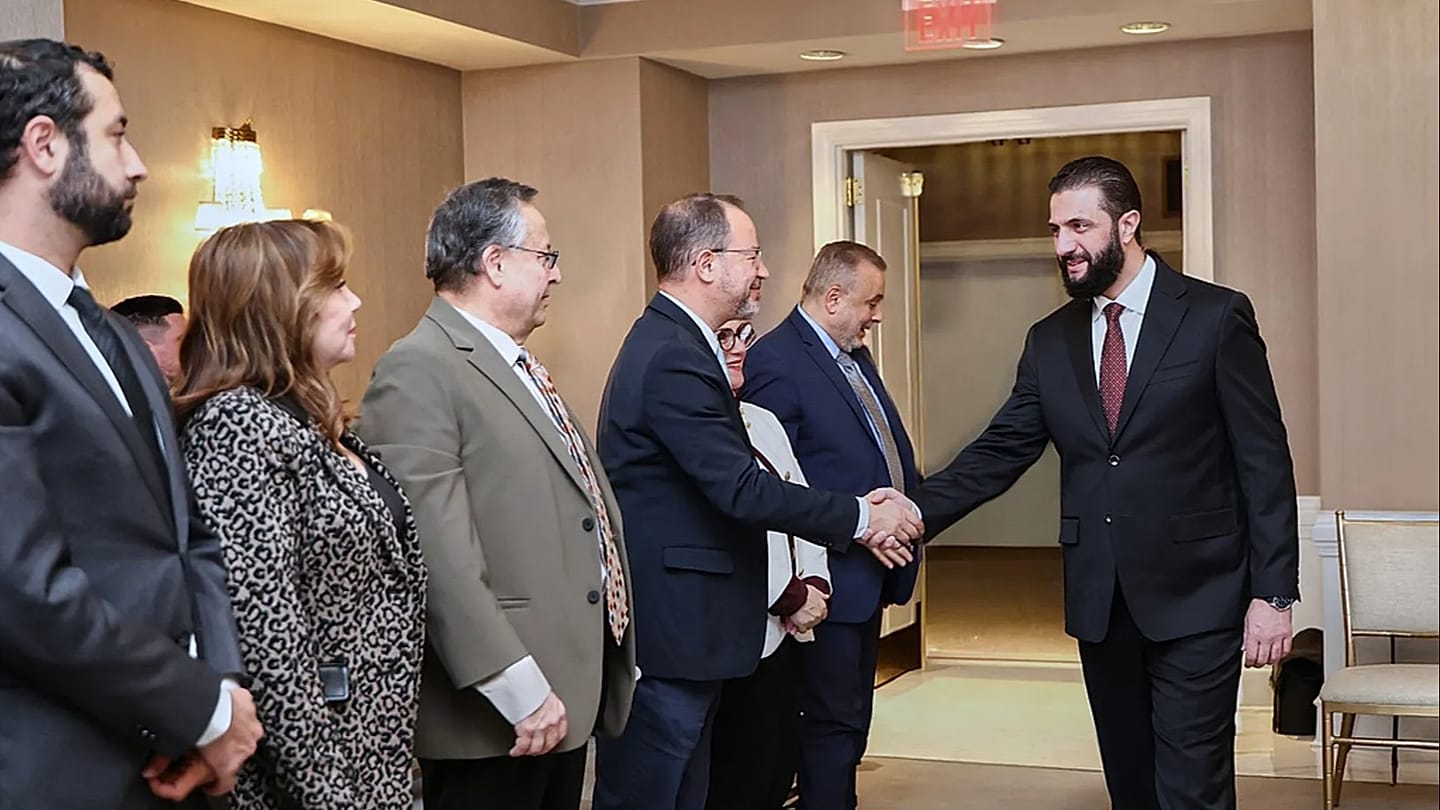
US President Donald Trump hosts Syria’s interim President Ahmad al-Sharaa at the White House on Monday in the first visit by a Syrian head of state since independence in 1946, with Damascus expected to formally join the US-led coalition against the so-called Islamic State group.
“Part of the president’s efforts in diplomacy to meet with anyone around the world in the pursuit of peace,” White House press secretary Karoline Leavitt said of the visit.
The meeting follows their May encounter in Saudi Arabia, the first official US-Syria contact since Bill Clinton met Hafez Assad in 2000.
Trump described al-Sharaa after the Riyadh meeting as a “young, attractive guy. Tough guy. Strong past, very strong past. Fighter.” The US president recently said al-Sharaa is “doing a very good job so far” and that “a lot of progress has been made with Syria” since Washington eased sanctions.
The talks are expected to see Damascus officially join the US-led coalition against the IS, a move that will allow it to work more closely with US armed forces.
Al-Sharaa seeks end to sanctions
The UN Security Council voted Thursday to lift sanctions on al-Sharaa and government officials. US UN ambassador Mike Waltz said the vote signals Damascus has entered a new era since the fall of dictator Bashar al-Assad in December 2024.
Al-Sharaa seeks permanent repeal of sanctions that punished Syria for human rights abuses under al-Assad’s government. Trump has waived Caesar Act sanctions, but Congress must act to abolish them permanently.
Advocates argue that an unconditional repeal would prevent company investment in Syria due to potential sanction fears. “Repealing sanctions with conditions is like a hanging shadow that paralyses any initiatives for our country,” said Mouaz Moustafa, Syrian Emergency Task Force executive director.
Al-Sharaa led rebel forces that toppled al-Assad in December and became interim leader in January. Two decades ago, he was held in a US-run Iraq detention centre after joining al-Qaida militants fighting US forces.
Since ousting al-Assad, al-Sharaa — who cut al-Qaida ties years earlier — conducted a largely successful effort establishing ties with countries that shunned al-Assad’s government after its 2011 brutal crackdown on protesters spiralled into a 14-year-long civil war.